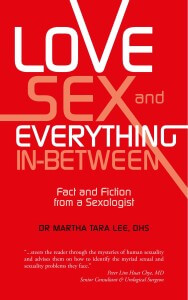
A breast cancer diagnosis can be a life-changing event that can cause a range of emotions, including stress and anxiety. It’s common to feel overwhelmed and uncertain about the future, and the physical and emotional toll of treatment can exacerbate these feelings. Seeking help and guidance for stress and anxiety is crucial for improving your overall quality of life and mental health. In this blog, we will explore why it’s important to seek help, the benefits of doing so, and the risks of not doing so. We will also provide detailed ways to cope with stress and anxiety after a breast cancer diagnosis, including tips on relaxation techniques, exercise, and self-care. Additionally, we will discuss the importance of reaching out to friends and loved ones for support and recommend breast cancer organizations that readers can get involved with. Join us as we navigate the emotional rollercoaster of breast cancer and provide insights on how to cope with stress and anxiety during this difficult time.
Why it’s common to feel stress and anxiety after being diagnosed with or treated for breast cancer
Being diagnosed with or treated for breast cancer can be an overwhelming and stressful experience, and it’s common to feel a range of emotions, including stress and anxiety. The diagnosis itself can be shocking and cause feelings of fear, uncertainty, and loss of control. Treatment can also be physically and emotionally taxing, with side effects such as fatigue, pain, and nausea. The fear of recurrence or progression of the disease can also cause ongoing stress and anxiety. Additionally, breast cancer treatment can disrupt daily routines, work schedules, and social activities, which can lead to feelings of isolation and loneliness. All of these factors can contribute to stress and anxiety during and after breast cancer treatment. It’s important to recognize that these feelings are normal and seek help if they become overwhelming.
Why is it important to seek help and guidance for stress and anxiety if you have breast cancer? What are the benefits of doing so and the risks to your physical and mental health of not doing so?
It’s important to seek help and guidance for stress and anxiety if you have breast cancer because these emotions can have a significant impact on your physical and mental health. If left unaddressed, stress and anxiety can lead to depression, fatigue, insomnia, and a weakened immune system. This can make it harder for your body to fight the cancer and recover from treatment. Seeking help can provide you with coping strategies to manage stress and anxiety, improve your overall quality of life, and enhance your ability to cope with the challenges of breast cancer treatment.
The benefits of seeking help for stress and anxiety include:
- Improved emotional well-being: Seeking help can provide you with the tools to manage your emotions and improve your overall mental health.
- Better physical health: Managing stress and anxiety can improve your physical health by reducing symptoms such as fatigue, pain, and nausea.
- Enhanced quality of life: Learning how to cope with stress and anxiety can help you maintain a positive outlook on life and enjoy the things you love.
The risks of not seeking help for stress and anxiety include:
- Increased risk of depression: Untreated stress and anxiety can lead to depression, which can further impact your physical and mental health.
- Weakened immune system: Chronic stress can weaken your immune system, making it harder for your body to fight off cancer cells.
- Reduced quality of life: Untreated stress and anxiety can impact your ability to enjoy life, maintain relationships, and engage in activities that bring you joy.
- Please suggest detailed ways to best cope with stress/worry or anxiety after a breast cancer diagnosis and treatment. What can/should patients be doing?
- Coping with stress, worry, and anxiety after a breast cancer diagnosis and treatment can be challenging, but there are several strategies that patients can use to manage these emotions effectively. Here are some suggestions:
- Seek support: It’s important to have a strong support system during this time. This can include family, friends, support groups, or a therapist. Talking to someone who understands what you’re going through can help you feel less alone and more supported.
- Practice self-care: Taking care of yourself is essential during this time. This can include getting enough sleep, eating a healthy diet, exercising regularly, and engaging in activities that bring you joy.
- Use relaxation techniques: Relaxation techniques such as deep breathing, meditation, yoga, or tai chi can help reduce stress and anxiety. These techniques can help you feel more relaxed and centered.
- Stay informed: It’s important to stay informed about your diagnosis and treatment options. However, it’s also important to limit your exposure to negative news or information that may increase your anxiety.
- Set realistic goals: Setting realistic goals can help you feel more in control of your life. This can include setting small goals for each day or week that are achievable and meaningful to you.
- Practice positive self-talk: Negative self-talk can increase stress and anxiety. Practicing positive self-talk can help you feel more confident and optimistic about the future.
- Consider therapy: Therapy can be a helpful tool for managing stress and anxiety. A therapist can provide you with coping strategies and support as you navigate the challenges of breast cancer treatment.
Overall, coping with stress, worry, and anxiety after a breast cancer diagnosis and treatment requires patience, self-compassion, and a willingness to seek support when needed. By using these strategies, patients can manage their emotions effectively and improve their overall quality of life during this challenging time.
Why is it also important to reach out to friends and loved ones for support at this time? How can that also help with stress and anxiety?
Reaching out to friends and loved ones for support is important for several reasons.
- It can help you feel less alone and isolated during a difficult time. Having someone to talk to and share your feelings with can provide emotional support and validation, which can help reduce stress and anxiety.
- Friends and loved ones can offer practical support, such as helping with household tasks or providing transportation to medical appointments. This can help reduce the burden of daily responsibilities and allow you to focus on your recovery.
- Social support has been shown to have a positive impact on physical and mental health outcomes in cancer patients. Studies have found that patients who have strong social support networks have better quality of life, lower levels of depression and anxiety, and better treatment outcomes.
In summary, reaching out to friends and loved ones for support can provide emotional, practical, and health-related benefits during a breast cancer diagnosis and treatment. It’s important to remember that you don’t have to go through this alone, and there are people in your life who care about you and want to help.
Do you recommend any particular breast cancer groups/organizations that readers should check out and get involved with?
There are many breast cancer groups and organizations that provide support, education, and advocacy for patients and their families. Here are a few that readers may want to check out:
- American Cancer Society: The American Cancer Society provides information and support for cancer patients and their families, including resources on breast cancer diagnosis, treatment, and survivorship.
- Susan G. Komen: Susan G. Komen is a leading breast cancer organization that funds research, provides education and support, and advocates for breast cancer patients.
- Breastcancer.org: Breastcancer.org is a nonprofit organization that provides information and support for breast cancer patients and their families, including resources on treatment options, side effects, and survivorship.
- Living Beyond Breast Cancer: Living Beyond Breast Cancer is a nonprofit organization that provides education and support for women with breast cancer, including resources on treatment options, clinical trials, and survivorship.
- Young Survival Coalition: The Young Survival Coalition is a nonprofit organization that provides support and resources for young women with breast cancer, including information on fertility preservation, treatment options, and survivorship.
Here are a few breast cancer groups/organizations in Singapore that readers may want to check out and get involved with:
- Breast Cancer Foundation: The Breast Cancer Foundation is a non-profit organization that aims to eradicate breast cancer as a life-threatening disease through advocacy, education, research, and support.
- Breast Cancer Support Singapore: Breast Cancer Support Singapore is a support group for breast cancer patients, survivors, and their families. They provide emotional support, information, and resources to help individuals cope with the challenges of breast cancer.
- Singapore Cancer Society: The Singapore Cancer Society is a non-profit organization that provides support and resources for cancer patients and their families. They offer a range of services including financial assistance, counseling, and support groups.
- National Cancer Centre Singapore: The National Cancer Centre Singapore is a leading cancer center that provides comprehensive care for cancer patients, including diagnosis, treatment, and survivorship support.
These organizations offer a range of resources and support services for breast cancer patients and their families in Singapore. It’s important to find the organization or group that best meets your needs and interests.
It’s important to remember that everyone copes with a breast cancer diagnosis and treatment differently, and there is no one-size-fits-all approach to managing stress and anxiety. It’s important to find what works best for you and to be patient and kind to yourself during this difficult time. Don’t be afraid to ask for help or reach out to others for support.
P.S. I am the Resident Sexologist of Singapore Cancer Society. If you are a member of SCS, you can apply for free sexuality support with me. Do reach out if you have any questions.
About Dr. Martha Tara Lee
Dr. Martha Tara Lee has been a passionate advocate for positive sexuality since 2007. With a Doctorate in Human Sexuality and a Masters in Counseling, she launched Eros Coaching in 2009 to help individuals and couples lead self-actualised and pleasurable lives. Her expertise includes working with couples who have unconsummated marriage, individuals with sexual inhibitions and discrepancies in sexual desire, men with erection and ejaculation concerns, and members of the LGBTQIA+ and kink communities. Dr. Lee welcomes all sexual orientations and is available for online and face-to-face consultations. Martha speaks English and Mandarin.
She is the only certified sexuality educator by the American Association of Sexuality Educators, Counselors and Therapists (AASECT) in the region (as of 2011) and is also an AASECT certified sexuality educator supervisor (as of 2018). She strives to provide fun, educational, and sex-positive events and is often cited in the media including Huffington Post, Newsweek, South China Morning Post, and more. She is the appointed Resident Sexologist for Singapore Cancer Society, Of Noah.sg, OfZoey.sg, and Virtus Fertility Centre. She is the host of radio show Eros Evolution for OMTimes Radio. In recognition of her work, she was named one of ‘Top 50 Inspiring Women under 40’ by Her World in July 2010, and one of ‘Top 100 Inspiring Women’ by CozyCot in March 2011. She is the author of Love, Sex and Everything In-Between (2013), Orgasmic Yoga: Masturbation, Meditation and Everything In-Between (2015), From Princess to Queen: Heartbreaks, Heartgasms and Everything In-Between (2017), and {Un}Inhihibited (2019).
You can read the testimonials she’s received over years here. For her full profile, click here. Email her here.







